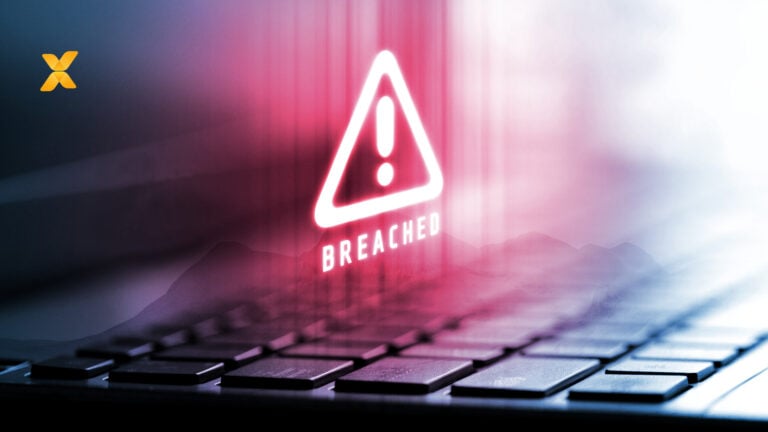Digital commerce businesses are an attractive target for cybercriminals, regardless of their size or revenue. It’s a common misconception that cybercriminals solely prey on international organizations or large Fortune 500 corporations.
The importance of cybersecurity cannot be overstated in the current digital climate.
Let’s run through some major attacks from 2022:
- A data breach at CRM platform HubSpot affected the company’s cryptocurrency customers.
- Identity platform Okta suffered a data breach at the hands of data extortion group, Lapsus$.
- A ransomware attack hit a major tire supplier, Bridgestone Americas, causing the organization to close down its computer network and production in the Americas for a week.
- In a similar vein, Pandora ransomware leaked stolen data from Denso, a multibillion supplier to major automotive companies.
- After a cyberattack, Toyota temporarily shut down almost a third of the company’s global production.
- A ransomware attack disrupted the supply chain of a major British brand, KP Snacks, for several weeks.
- Portugal media behemoth Impresa fell victim to a ransomware attack that crippled its streaming capabilities for several days.
Just this sampling of attacks from early 2022 shows that cybercriminals don’t discriminate. While major names make headlines, small and mid-sized ecommerce businesses experience attacks as frequently as their giant counterparts.
Bad actors often use automated malware and systems that attempt to breach different websites, with no knowledge of the actual type of business. One attack may ravage a diverse range of industries, from major corporations to small mom-and-pop shops.
The Importance of Cybersecurity for your Business–Regardless of the Size
Unfortunately, hackers often favor small and mid-sized businesses because they accurately assume that such stores lack established security systems that safeguard them against a variety of attacks. Small and mid-sized business owners may opt for minimum or limited protection for budgetary reasons, or because they incorrectly believe they’re not attractive to cybercriminals.
Large corporations undoubtedly do spend much more on digital security measures compared to their smaller counterparts. However, the assumption that any online business flies below the radar of bad actors is a false safety net.
The pandemic gave rise to the remote workforce for businesses of all sizes, and this provides another easy entry point for hackers. Employees working from home means an increase in the number of devices connected to your network and a heightened risk of security threats via human error.
Attackers may target small and mid-sized businesses because:
- Like their larger counterparts, small and mid-sized businesses collect and store private data belonging to their customers, including payment information
- Small and mid-sized businesses conduct financial transactions, which opens a window for attack during the checkout process
- Small and mid-sized businesses may have valuable intellectual property, which could be more attractive to attackers than data
4 Steps for Online Security
Because all ecommerce businesses are inherently vulnerable to online attacks, every business owner should take the necessary steps to arm themselves against cybercriminals.
It all starts with changing both your perspective and your approach to online security. While many providers offer tools to protect against digital attacks, using the tools effectively is another matter. First, you must cultivate a proactive approach to cybersecurity from the inside out.
1. Build a Culture Focused on Security
Implementing cybersecurity measures requires more than simply purchasing a tool and forgetting about it. Businesses must develop a security-first culture within their workspace, from customer service agents and administrative employees to developers and programmers, and up through management.
While the potential aftereffects of a data breach may disastrous for any business, smaller businesses may need to close their doors altogether. That’s why instilling a sense of urgency around online security is vital. Encourage your staff members by incentivizing them to abide by security measures, rather than frightening them with potential consequences of mistakes.
Building a security-centered culture requires time and effort on your part; sustain your practice through routine check-ins with staff members, open dialogue around safety procedures, and an established structure through which employees can easily ask questions and learn more about cybersecurity.
By proactively creating a strong focus on security in your workplace, you arm every colleague with the knowledge and skills to help safeguard your business. Remember, the attack that took down the largest fuel pipeline in the U.S., Colonial Pipeline, and caused fuel shortages across the east coast occurred due to one compromised password.
Had the company implemented training around password safety and enforced protocols around password strength and 2-step verification, the hack may have been avoided altogether.
2. Implement a Security-First Strategy
Rome wasn’t built in a day, and neither will your security strategy. Build a strategy to achieve security objectives over time, peppered with essential mile markers along the way.
First, implement a security framework for your business that details the roles, responsibilities, and chain of management around your security procedures. The framework should describe your long-term, strategic security plan in defensive and offensive mode.
Consider including
- Security policies
- Technical tools and measures
- Assessments
- Audits
- Regularly scheduled security audits and penetration tests
- A routinely scheduled look at legislation and laws that your business falls under
A security strategy decreases your security risk because you’ve taken steps to actively prevent attacks. A security framework ensures that your security efforts are aligned with your business goals and consistent with laws and regulations.
3. Guide Staff on Security Matters
It’s easy for business owners to overlook a vastly important factor in their security measures – their staff. After all, the success of your security measures depends on the people carrying them out daily. Invest the funds, time, and effort in cybersecurity awareness training to keep your employees engaged and knowledgeable in all areas related to cybersecurity.
A recent study found that an astounding 85% of data breaches occur due to human error, which makes security training an essential measure that should be conducted regularly.
4. Acquire Tools to Protect Your Business
Your security-first company culture, strategy, and trained employees provide a strong foundation for your digital business against potential threats. However, the growing persistence of bad actors means that it’s a good idea to invest in the latest tools for an additional layer of protection. Think of it this way—bad actors “invest” in the latest technology constantly in order to hack your website. Don’t make it easy for them!
A multi-layered approach to cybersecurity will provide your business with the most comprehensive protection, which will make it more difficult for bad actors to breach your systems. A few common tools to protect your business include
- Web application firewall
- Security reporting dashboards
- Content delivery network (CDN)
- Vulnerability scanning assessment
- Intrusion detection system
- Log management system
- Weak password detection
- Data breach monitoring
For the best results, use the tools mentioned above collectively.
While these tools will help strengthen your security posture, remember that many of the largest global corporations have experienced data breaches. That’s why it’s important to pair your suite of security tools with a solid culture of security awareness amongst your employees. This comprehensive approach to cybersecurity will yield the best results for your digital commerce business.
5. Partner with Independent Security Experts
Every digital commerce business has its own set of optimal security requirements. At Vaimo, we encourage our clients to choose their security levels based on risk aversion. We offer everything from a minimum level needed to safeguard operations, to a loaded suite of security products and services to fully bolster your security standing.
Our independent security team offers penetration testing, and security audits, and provides comprehensive advice to help you select the most appropriate security measures for your ecommerce business. We provide multiple security laters for our different hosting options, including Vaimo hosting, Adobe cloud, and 3rd party hosting.
We offer our services in a way that gives you the freedom to pick and choose the features you need for your unique business. We’ve safeguarded over 400 ecommerce sites; we can advise you strategically and assist with your security implementation and execution.
Talk to us today about your ecommerce security needs! With Vaimo, you’ll be in safe hands.








